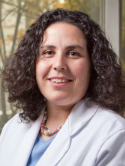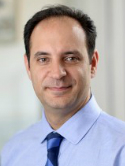Conversion therapy to transplant or surgical resection in patients with unresectable hepatocellular carcinoma treated with boosted dose of yttrium-90 radiation segmentectomy Journal Article
| Authors: | Son, S. Y.; Geevarghese, R.; Marinelli, B.; Zhao, K.; Covey, A.; Maxwell, A.; Wei, A. C.; Jarnagin, W.; D’Angelica, M.; Yarmohammadi, H. |
| Article Title: | Conversion therapy to transplant or surgical resection in patients with unresectable hepatocellular carcinoma treated with boosted dose of yttrium-90 radiation segmentectomy |
| Abstract: | Background/Objectives: The aim of this study was to assess the efficacy of boosted dose yttrium-90 radioembolization (TARE) as a modality for conversion therapy to transplant or surgical resection in patients with unresectable hepatocellular carcinoma (HCC). Methods: In this single-center retrospective study, all patients with a diagnosis of HCC who were treated with boosted dose TARE (>190 Gy) between January 2013 and December 2023 were reviewed. Treatment response and decrease in tumor size were assessed with the RECIST v1.1 and mRECIST criteria. Milan and University of California, San Francisco (UCSF), criteria were used to determine transplant eligibility, and Barcelona Clinic Liver Cancer (BCLC) surgical resection recommendations were used to evaluate tumor resectability. Results: Thirty-eight patients with primary HCC who were treated with boosted dose TARE were retrospectively analyzed. The majority of the patients were Child–Pugh A (n = 35; 92.1%), BCLC C (n = 17; 44.7%), and ECOG performance status 0 (n = 25; 65.8%). The mean sum of the target lesions was 6.0 cm (standard deviation; SD = 4.0). The objective response rate (ORR) was 31.6% by RECIST and 84.2% by mRECIST. The disease control rate (DCR) was 94.7% by both RECIST and mRECIST. Among patients outside of Milan or UCSF, 13/25 (52.0%, Milan) and 9/19 (47.4%, UCSF) patients were successfully converted to within transplant criteria. Of patients who were initially unresectable, conversion was successful in 7/26 (26.9%) patients. Conclusions: This study provides further real-world data demonstrating that boosted-dose TARE is an effective modality for conversion of patients with unresectable HCC to transplant or resection. © 2024 by the authors. |
| Keywords: | adult; treatment response; hepatocellular carcinoma; chemoembolization; liver cell carcinoma; nonhuman; nuclear magnetic resonance imaging; follow up; tumor volume; cohort analysis; retrospective study; health insurance; vascular tumor; arteriography; tumor growth; disease control; hepatitis b virus; hepatitis c virus; logistic regression analysis; fisher exact test; disease exacerbation; alpha fetoprotein; tumor thrombus; single photon emission computed tomography; nonalcoholic fatty liver; radioembolization; yttrium-90; child pugh score; human; male; female; article; segmentectomy; ecog performance status; single photon emission computed tomography-computed tomography; radiation segmentectomy; conversion therapy |
| Journal Title: | Cancers |
| Volume: | 16 |
| Issue: | 17 |
| ISSN: | 2072-6694 |
| Publisher: | MDPI |
| Date Published: | 2024-09-01 |
| Start Page: | 3024 |
| Language: | English |
| DOI: | 10.3390/cancers16173024 |
| PROVIDER: | scopus |
| PMCID: | PMC11394260 |
| PUBMED: | 39272882 |
| DOI/URL: | |
| Notes: | Article -- MSK corresponding author is Hooman Yarmohammadi -- Source: Scopus |
Altmetric
Citation Impact
BMJ Impact Analytics
MSK Authors
-
 169
169Covey -
 916
916Jarnagin -
 791
791D'Angelica -
 133
133Yarmohammadi -
 33
33Marinelli -
 212
212Wei -
 40
40Zhao -
 8
8Son -
 18
18Geevarghese
Related MSK Work



